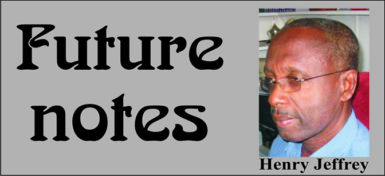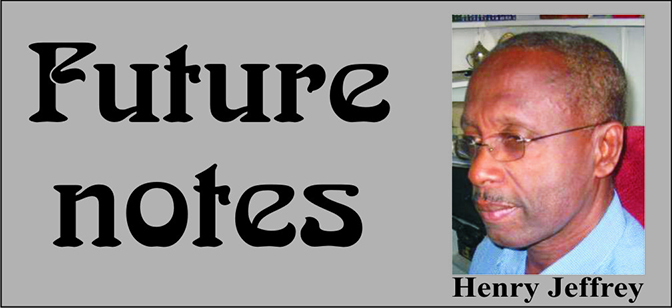The Christmas season is as good as any to indulge in ‘lite’ nostalgic ruminations and what follows in two parts tells the story of a minor event leading up to the political ascendency of Robert Mugabe. It may also remind us of the toxic influence race/ethnicity could have on the political process; that although other factors such as the invention of the birth control pill in 1957 made a tremendous contribution, of the interrelated but significant part young people of the period played in transforming our social consciousness and since the University of Warwick provides the backdrop for this story, it also allows me to congratulate veteran businessman Yesu Persaud for having the Centre for Caribbean Studies at Warwick renamed after him.

From the late 1880s, when Cecil Rhodes’ British South African Company introduced white gold miners into Zimbabwe and turned them into farmers when the mining venture failed, the quarrel between the Europeans and the native Ndebele and Shona peoples began. By 1914, 24,000 white settlers owned just over 19 million acres of the best land while 750,000 Africans occupied just over 21 million acres, including most of the marginal lands. (http://raceand history.com/ Zimbabwe/faactssheet.html). By independence in 1980, the situation had deteriorated somewhat: Africans who made up 97% of the population owned just under half the total area of arable land, while the rest was controlled by whites who made up only 3% of the population. (http://www.raceandhistory.com/Zimbabwe/ factsheet.html).
Thus, when in 1960, addressing the South African parliament, Prime Minister, Harold Macmillan made his famous ‘wind of change’ speech, which announced that Britain would be relinquishing control of its African colonies based upon majority rule, generally the white population of Southern Africa was not amused and began to take counter measures. In Rhodesia, the land issue and the reluctance to give up political authority led to the Bush war of 1964 to 1979 in which the Rhodesian government of Ian Smith was pitted against the Zimbabwe African National Liberation Army, the military wing of Robert Mugabe’s Zimbabwe African National Union and the Zimbabwe People’s Revolutionary Army of Joshua Nkomo’s Zimbabwe African People’s Union.
In November 1965, Ian Smith, unilaterally declared the country’s independence from the British crown (UDI). Unlike what the British government had historically done – even in Guyana in the 1950s/60s – if a non-white government had attempted such a feat, the British Labour government of Prime Minister Harold Wilson, stated in advance that force would not be used against this clear act of rebellion. Perhaps he gauged that there was little popular support in England for the use of force against white ‘kith and kin’ but by this act he seriously undermined his government’s international credibility and the series of interventions – economic sanctions and negotiations – it undertook to attempt to bring the racist government to heel.
Maybe boosted by the invention of ‘the Pill’ which allowed women far more freedom, the 1960s marked the entry of young people, particularly students, as a distinct socio/political group throughout Europe. At the time, many still viewed university students as a privileged group but the latter had begun to reject this dichotomy and to view injustice as a universal issue. For example, perhaps paraphrasing Vladimir Lenin, in 1972 the conference of the National Union of Students passed a motion stating that, ‘Conference recognises that the oppression faced by women in British society cannot be seen in isolation from the capitalist system’. What was unjust for any class in society was simply unjust and the student movement began to take stands against the Vietnam War and nuclear proliferation and to support the Palestinian struggle for liberation. It has been estimated that by the beginning of 1973, 400,000 students in Britain were involved in various protests. Directly related to our story; decades before any of the major political parties, students were fighting against apartheid, supporting the boycott of South African sports teams and ‘By the end of the 1970s, eighteen universities had withdrawn their financial investments in South Africa’ (https://www.plutobooks.com/blog/student-protests-past-present/).
Such was the level of student activism that in the late 1960s students at Warwick and Essex universities discovered files showing that the university had been systematically spying on their political activities and that the vice chancellor of the University of Warwick had rejected one applicant because he had been warned of his political inclinations by his former headmaster. This spurred mass protests and major occupations and it was these activities that motivated my application to Warwick University to do sociology, then considered the most revolutionary discipline. Not surprisingly, I was informed that sociology was oversubscribed and that I could choose another programme, and I chose politics, which was then considered far more conservative.
This then was the state of play when I went to the University of Warwick in 1970 and together with another West Indian and an African postgraduate student, took the management of the Politics, African and Latin American societies. On 15 May 1971, the Birmingham Post reported that Lord (Baron Arnold Abraham) Goodman, then at the height of his influence, had been identified as the favourite for the vacant position of pro-chancellor of Warwick, and I doubt that many of us paid much attention to such ‘bourgeois politicking’. More will be said of Goodman later but when he died in 1995, the daily Telegraph obituary stated: ‘Lord Goodman … was a brilliant solicitor and for many years the Establishment’s chief mediator and fixer; he never held elective office, but few in Britain wielded more influence.’
Understandably, then, as part of its effort to deal with the Rhodesian regime, the 1970 Conservative government of Prime Minister Edward Heath chose Lord Goodman as its special envoy to the government of Rhodesia and on 6 June 1971 Goodman arrived in Rhodesian capital Salisbury. In the context of student politics at the time, Lord Goodman’s going to negotiate with the racist Rhodesian regime which, against all historical precedents, the British government had refused to forcefully remove, was a red flag. It demanded a radical student response and as chairperson of the African society, I had to make the public charge that the University of Warwick ends its association with Goodman.






